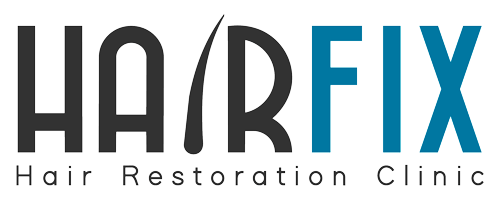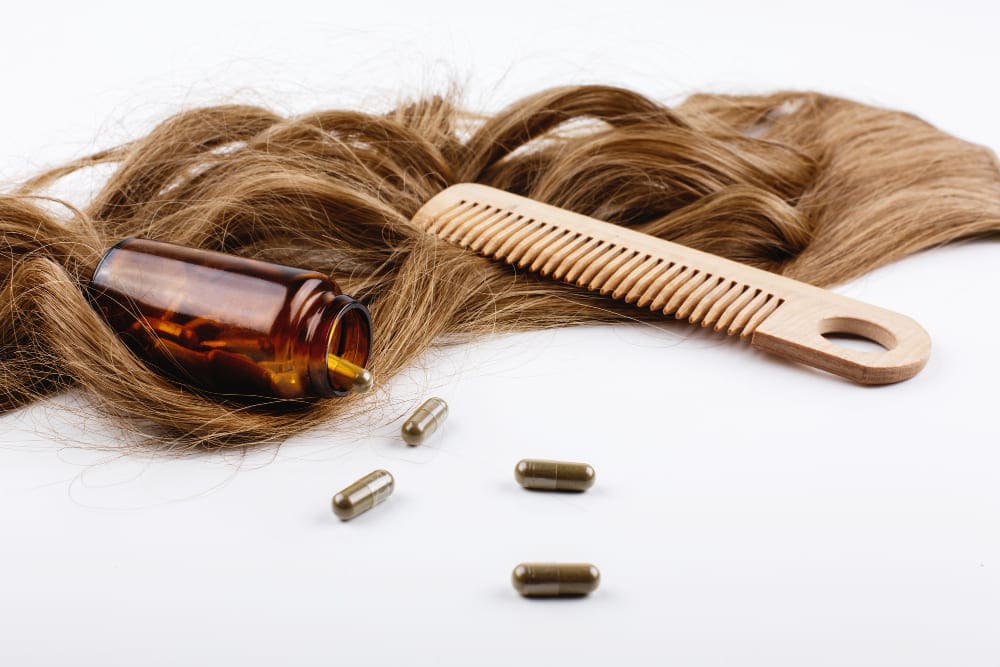Who hasn’t looked into the mirror at least once and thought, is my hair getting thinner? And then, what can I do about it?
The answer is: just about all of us. As we go through different life stages, the thickness, texture, and color of our hair change. So naturally we look for ways to restore and strengthen it, and one of those ways is through vitamins and minerals. Nearly every nutrient we need for our hair we also need for good health, but some, however, are especially important for hair. Here’s 10 of them:
- Vitamin A is a family of nutrients, including retinol and beta-carotene, which play a big role in cell growth. It also produces sebum, an oil which nourishes the scalp. You’ll find plenty of Vitamin A in carrots, cantaloupes, squash, leafy green vegetables, and fortified milk.
- Vitamin B-5, also called pantothenic acid, is noted for its ability to nourish hair follicles, which is why it’s often found as an ingredient in many popular shampoos. Whole grains, dairy products, and beans are good sources of this nutrient.
- Vitamin B-12 is essential for making red blood cells, which carry oxygen—which hair must have to grow–to the scalp. B-12 is found in eggs, poultry, and fortified cereals.
- Biotin, which is also called Vitamin B-7 or Vitamin H, also helps get blood to hair follicles and supports the development of keratin, a protein essential to healthy hair, skin, and nails. Dairy, eggs, and nuts are excellent sources of biotin.
- Vitamin C is well known as an immunity booster, but it also aids in the production of collagen, another protein which nourishes the skin and scalp and stimulates the growth of hair follicles. Vegetables and fruits, especially citrus, are natural sources of Vitamin C.
- Vitamin E is a powerful antioxidant that counters the effects of free radicals, which break down beneficial lipids (fats) that nourish the scalp and hair. Leafy greens, nuts, and seeds supply Vitamin E.
- Folic Acid is the synthetic form of Folate, or B-9, which supports keratin, which is thought to slow premature greying. Leafy greens, legumes, and other vegetables are sources of folic acid.
- 8. Iron is the mineral primarily responsible for creating red blood cells, which carry oxygen to the scalp to nourish hair. Red meats, organ meats, eggs, and leafy greens such as spinach are good sources of iron.
- Selenium is a trace mineral (meaning you don’t need a lot of it) that supports a healthy scalp, protects it from fungal and bacterial infections, and helps keep a healthy thyroid, which is crucial for hair growth. Eat seafood, brown rice, nuts, and whole wheat products for selenium.
- Zinc is well-known for its health benefits, particularly for skin, nails, and hair; it provides immune support and keeps the scalp and hair follicles healthy. Zinc occurs naturally in shellfish, meat, spinach, and whole grains.
All of these nutrients, taken in food or in supplements, aren’t all you need for healthy hair, but they’re a good start. Your hair is only as healthy as your body, so vitamins are a win-win all the way around!
It’s also to important to remember that too much of anything—even a good thing—can be harmful. Taking too many vitamins can actually cause hair loss, or even serious health problems. Always check with a health care professional before taking supplements of any kind.
Hair vitamins and more!
Taking vitamins is great—but if you want to take a more assertive approach to restoring your hair, you have options.
One choice is a hair graft, or transplant. Grafting is done by extracting healthy, growing hair follicles, taken usually from the back of your head, and implanting them into areas that are bald or thinning. The grafts begin to grow in their new location, similar to the way the original hair once did. It’s a simple office procedure, done under a mild local anesthetic, and you can supplement it with vitamin therapy for enhanced results.
Or, if a transplant’s too drastic for you but you like the idea of vitamins, then mesotherapy might be the answer. It involves a series of injections that deposit select vitamins and minerals directly into the scalp, so they immediately get right to the source of the problem. There’s minimal discomfort and inconvenience, and it’s a good “middle-of-the-road” solution. Of course, you can still take vitamins by mouth to boost your overall health.
Let Us Help!
Tackling hair loss is a big step, but there are resources at your disposal. The outstanding medical staff at HairFix hair transplant clinic in Tijuana is ready to discuss hair loss treatment in Mexico, mesotherapy, or other options. Located in sunny Tijuana, we’re here for all your hair needs, including hair transplant in Mexico and eyebrow transplant in Mexico! Contact us today to get started! Ask us about mesotherapy hair price and hair transplant price in Mexico.



